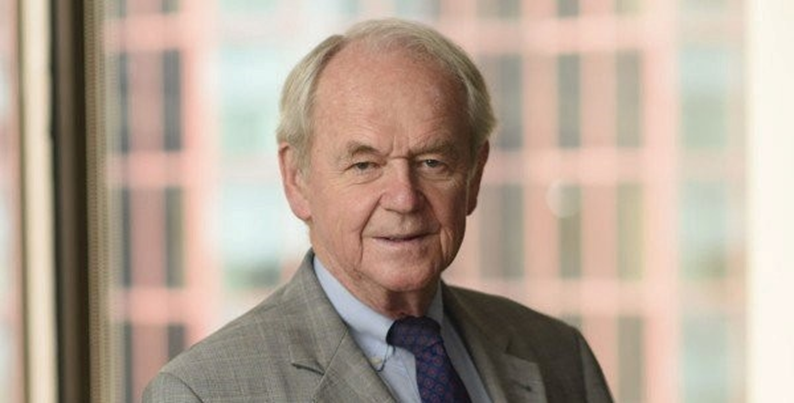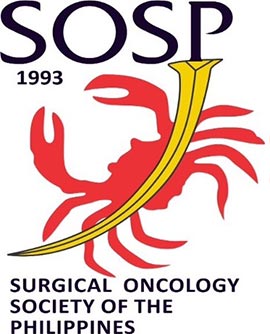
By: Professor Sir Murray F. Brennan, GNZM, MD | July 16, 2021
2021 SOSP Distinguished Surgical Oncology Lecturer
*Transcript of Online Speech Delivered during the 5th SOSP Annual Convention that was held on July 16, 2021Good morning, and greetings from New York.
It is a pleasure to be invited to greet you on the occasion of the 5th Surgical Oncology Conference of the Philippines. I first want to thank Dr. Samuel Ang and Dr. Leon for the kind invitation, and I am sorry that I cannot be there in person. You will certainly understand that as you currently confront your challenge with COVID, which we have been going through for almost 18 months. I want to acknowledge that Dr. Sam Ang and myself have known each other for a very long time; far longer than either he or I would like to acknowledge.
It is a very exciting time to be a surgical oncologist and perhaps even more exciting for those of you in the Philippines. With the development of your new cancer plan and the potential for 24 new cancer centers, you are out of a great time to develop better cancer care. Dr. Ang wondered if I would speak briefly about leadership in cancer care, which I’m delighted to do.
Surgeons have a unique role in being the leader of cancer care and this came about because we see the patients first, we make the diagnosis, and we get to influence their care – literally from diagnosis to demise.
It is also important to understand the limitations of what is available to you in the Philippines. How available are medical oncology, radiation oncology, and new immunotherapies?
Not that they won’t become available, of course they will, and many of them are already there. More importantly, however, is that you –the surgical oncologists – have a great opportunity to develop leadership in cancer care. What is that dependent upon? Well, it is primarily dependent on the fact that, first, you must be an excellent clinical surgeon. But more importantly, you must accept that for the patient, this is about the management of disease not necessarily about the technique of surgery.
For solid tumors, you have the best possible technique for at least 70% of cancers. However, the patients need to understand the disease - they want you to take care of them, and what a great opportunity that is currently in the Philippines. You’ll be able to bring together groups that as a group can lead. You no longer need to demand operation is the only course. You need to demand and can guide what is needed in terms of the best management for cancer patients. That begins with the diagnosis. You are most likely to see the patient first. You are the most likely person to perform that diagnosis and there is no reason that you need, on most occasions, other than a true cut biopsy of solid tumors. Having made the diagnosis, you attend the person that usually creates the possibility of making the stage of the disease, or more importantly, the extent of the disease. A localized tumor certainly within your province, a more disseminated tumor, you guide them into systemic therapy.
More importantly, as you understand a particular cancer, you will know what the likelihood is of finding disease elsewhere. And just by knowing the natural history of that cancer, you will be the one that can guide what is (the) appropriate imaging. This is important because in any society we currently overuse investigation, not underutilize it and what sensible use of the resources available, we can guide the patient in that approach.
Having made the diagnosis, having established the extent of the disease, you then are again in the best position to guide what’s appropriate. More and more, we will see that systemic therapy for people either at very high risk or the already established systemic disease, will seek chemotherapy and possibly radiation therapy.
Prior to the surgery, the selective use of the appropriate approach will become key. A great opportunity, for you – the surgical oncologists – to continue to lead. Having established what is the appropriate approach and being aware that on occasions, surgery will be the adjuvant as chemotherapy becomes the neoadjuvant, you will once again be able to guide the patient and the group of people looking after.
As I understand it, you are limited with perhaps 100 medical oncologists to 100 million people. That number will increase but it never will be enough for you not to be familiar with what is available in systemic therapy. More importantly, perhaps that systemic therapy progressively becomes outpatient treatment often with oral agents, you will be in a great position to guide there and indeed supervise it and often administer the treatment.
The knowledge of the complications of any systemic therapy is very similar to the knowledge of the drugs you might use in the intensive care unit. You learned how to use various vasopressin agents and you can learn, without much difficulty, about how and what are the consequences of treatment. That is important not just for your own leadership but for the patient. The patient will come to trust you if you saw them first. You lay the diagnosis; you give them advice about how and what should be the first approach. You must be a well-trained surgeon, but I have little doubt that that is very true in the Philippines. The Philippine surgeons I have seen, have always been excellent clinicians; no reason not to build upon that.
As targeted therapy becomes more important, you will become even more important because, without the appropriate biopsy and the appropriate use of tissues, guided by the pathologists, that only a few provide with the appropriate tissue, you will be able to begin to select targeted agents – that is a burgeoning field.
Another burgeoning field is immunotherapy. Here again, you will have to understand the consequences of immunotherapy because many of the complications of immunotherapy, particularly those that involve the GI tract will be problems that you – the surgical oncologists – will be required to manage. And that would be hard to appreciate on occasions when you think the patient could possibly have C. difficile colitis when infected with immunotherapy-related complications. When the management is not antibiotics but steroids, you will be the one that is knowledgeable about that.
And then, prior to perhaps more important than anything, you can be the patient’s guide. The patient is desperate in cancer care in this country, and presumably in the Philippines, for someone to help them through this most challenging of occasions. That begins with you, and it begins with you setting expectations. Do not promise what you cannot deliver or more importantly, do not promise what others cannot deliver. Nothing is more damaging to your colleague and to the patient: to tell a patient that a colleague will deliver something that you know they cannot deliver just as if you promised something you cannot deliver.
In addition, many of you see patients in the advanced stage. You must promise that you will help them through their entire course of treatment. You will not deliver that, but you will help them select appropriately. When it comes to a time when there is no more chemotherapy, no more surgery, you must be the one that at least says, “I will take care of you”. It may require the use of many colleagues – palliative care or pain management – but if the patient understands that you care, then they will take your advice.
I think it is a very exciting time to be a surgical oncologist. I think it is a very exciting time to take a leadership role in cancer care. You are all very well- trained surgeons as you embrace the understanding of cancer as a disease. I have been asked how many cancers are there and people say, “Oh well, there’s a hundred sarcomas.”. We or your generation, perhaps not mine, may welcome the fact that the number of cancers will be the number of patients with cancer. As we understand how the host – the patient – deals with their cancer, we will become even better doctors in selecting what is appropriate for the management.
I am excited to hear about this conference and I’m so sorry that I cannot be present. I do thank Dr. Ang and Dr. Leon for the invitation to speak to you. This is a great time to take a leadership role in the Philippines, by you as surgeons knowing that the patient is desperate for a leader, and you can be that. And your colleagues will look to you for leadership. Embrace that it’s not easy. Sometimes, difficult. Often, uncomfortable. But if you set the expectations when you first see the patient, you will help them get through this most challenging events in their lifetime.
I thank you once again for the chance to talk. I look forward to seeing some of you in the future. And I thank you all for asking me to help open this conference.
Good luck.


